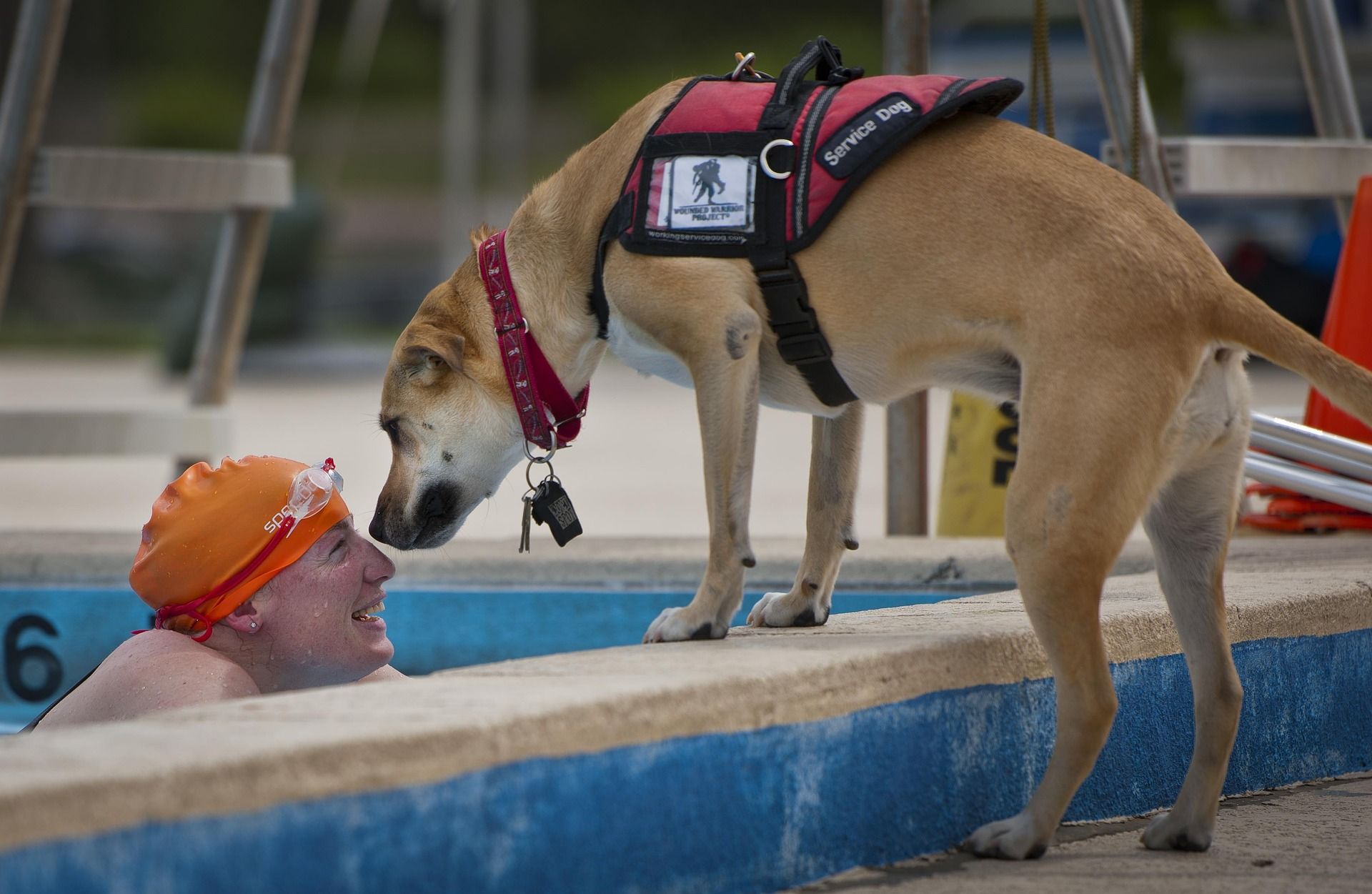Can a Service Animal Help My Family Member with Special Needs?

Service animals provide an invaluable benefit to people who have a disability. These animals have completed programs that teach them how to execute tasks, provide social support, aid with life skills, and respond to a medical emergency.
Sometimes impairments will result later in life due to an injury. After an incident has occurred, you may find a service animal to be beneficial as they can provide mental as well as physical assistance after any injury that was caused by the negligent actions of another human being.
Qualifications for a Service Animal
To receive a service animal, a person must have special needs which is defined as “a physical or mental impairment that substantially limits one or more major life activities” as stated in the American Disabilities Act. The person acquiring a service animal must demonstrate that they can provide proper care for the animal in a stable living situation.
On the other hand, the special needs animal must have had the training to assist with tasks that are required to aid its owner. Some duties that a service animal is taught may include dialing 911 if there is an emergency, reminding a person to take medication, guiding people who are blind, or calming a person with Post Traumatic Stress Disorder (PTSD). These are just a few of the many day-to-day activities where a service animal can help.
Functionality of a Service Animal
Since service animals can assist in different areas of a person’s life, they are classified into four distinct groups listed below:
- Service animal: This can only be a dog. These dogs are trained to carry out specific duties related to an individual’s disability
- Assistance animal: This group includes any animal who completes training. They can provide services related to a specific disability along with emotional support
- Emotional support animal: They exist solely to ease the emotional struggle that occurs from a person’s special needs. Any animal can be classified in this group and they do not need to complete any training requirements
- Therapy animal: These animals are allowed in hospitals, nursing homes, and other facilities by prior agreement. They learn how to relieve the emotions of people who do not have a disability
Depending on an individual’s special needs, they may be accompanied by multiple animals.
Financial Costs Associated with a Service Animal
The average cost to obtain a service animal is between $20,000 and $60,000, which includes extensive training, vet care, and registration fees. This may seem overwhelming, but there are many different options to help people with financial needs to cover these costs.
Grants
Multiple organizations provide individuals who have disabilities with grants to support them in acquiring a service animal. If you have autism, Dogs for Better Lives and Paws with A Cause are two nonprofit groups that provide financial assistance. For mobility issues or visual impairment, Canine Partners for Life and Guide Dogs of America will issue grants respectively.
FSA Accounts
Sometimes insurance companies will have a flexible spending account attached to your policy to aid you with purchasing a service animal. To qualify, you must have a letter of medical necessity written by your primary health physician.
Loans
Lastly, if you do not satisfy the requirements for financial help from a nonprofit organization, you could take out a personal loan to help finance the costs associated with obtaining a service animal.
Call an Attorney Today
If you or somebody you love became injured in some type of accident that required you to develop a disability, you may be entitled to compensation. Please consider contacting a personal injury lawyer at Amy G. They have the experience with injury lawsuits and may be able to aid you in your fight towards justice.